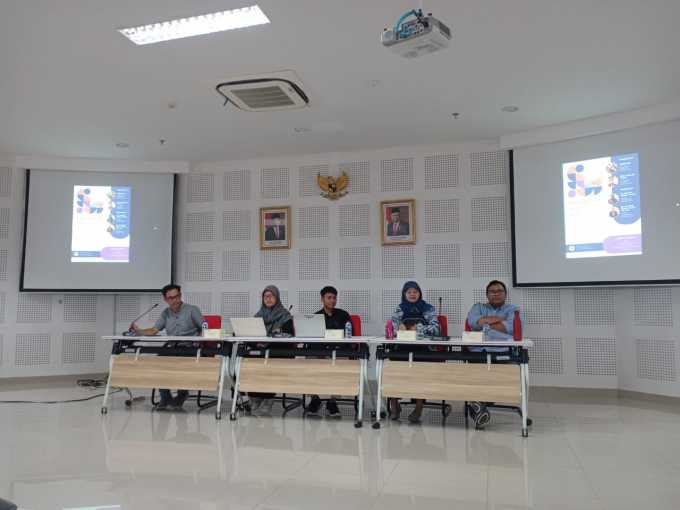
SGDs 4: Quality Education
On Thursday, February 22, 2024, the Faculty of Cultural Sciences Department of History successfully held a colloquium for Masters in History with two presenters, namely Indriyani and Nur Fadilah Yusuf. Meanwhile, Dr. Mutiah Amini, M.Hum. and Dr. Wildan Sena Utama, S.S., M.A. served as discussants. The event was also attended by the Head of the Department of History and students of S2-S3 History which took place from 13.30 to 15.30 WIB in room 709 Soegondo Building, Faculty of Arts UGM.
Indriyani with a thesis plan entitled “The King’s Symbol Becomes the City’s Symbol: Sriwedari Park in Surakarta 1901-1987” became the first presenter in the colloquium. In general, her thesis explains that Sriwedari Park has experienced a change from an exclusive space to an inclusive space. Initially, Sriwedari Park was established by Pakubuwana X in 1901 as a private space of the palace, so ordinary people often referred to the park as “Bon Raja” or “Kebon Raja” which means “King’s Park”. Later, this condition changed when the commercialization of Sriwedari Park occurred through the implementation of entrance tickets or tickets. Eventually, the park became a public space. After Indonesia’s independence, Sriwedari Park became a revolutionary space where the majority of the ticket sales were used for the cause of independence. After the revolution, there was an assumption in the community that “you haven’t been to Solo if you haven’t been to Sriwedari”, so according to Indriyani, Sriwedari Park eventually became a kind of symbol of Solo.
The second speaker, Nur Fadilah Yusuf with a thesis plan entitled “Taman Ismail Marzuki: The Life of Art and Politics 1968-1998” generally discussed the relationship between art and politics in which the state influenced the running of activities at TIM (Taman Ismail Marzuki). Initially, the establishment of TIM in 1968 was the result of discussions between people known as the Cultural Manifesto group and Governor Ali Sadikin. It can be said to be a grant because of the support of the artists at that time towards the New Order rulers. Nur Fadilah Yusuf also talked about how TIM changed not only spatially, but also in terms of thought (from the representation of art for art’s sake to socialist realism brought by Lekra). In 1998, TIM functioned as a discussion space for activists and students who were going to carry out the reform movement at the Jakarta parliament building.
This colloquium is certainly a golden opportunity for the presenters to get progressive criticism and suggestions for the improvement of their work. Moreover, as Wildan Sena Utama said, the tradition of peer review in Indonesia is still relatively rare.
“People in Indonesia, one of the reasons why many of them turn their attention to predatory publishers like that is because they avoid the peer-review tradition. They are antipathetic to the peer-review tradition because they are afraid, so they think of it as a kind of killing field, you know, not as an opportunity to improve your work, (to) improve your quality,” said Wildan Sena Utama.
In addition, Wildan Sena Utama also provided tips for dealing with peer review.
“There are tips, when you get a complex peer review, don’t do it right away, just let it sit for a day or two because sometimes you also have to prepare your brain first to work on it. That’s one of the tips for dealing with peer review,” he said.

